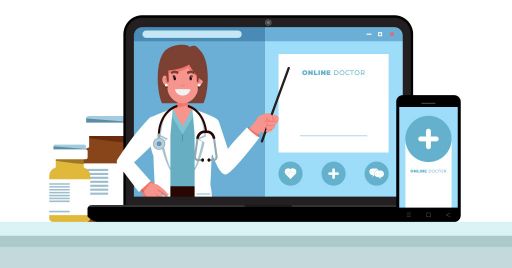

Elearning for training in the pharmaceutical and healthcare sectors
How can eLearning improve the effectiveness of continuous training in the pharmaceutical and medical sectors?
Elearning for training in the pharmaceutical and healthcare sectors
How can eLearning improve the effectiveness of continuous training in the pharmaceutical and medical sectors?
In the pharmaceutical and medical sectors, new discoveries emerge daily, especially through the application of technology. Information and knowledge in this field are constantly developing and updating. New drugs, technologies, treatment methodologies, and regulations require professionals to stay continuously updated.
These sectors require “continuous learning” that allows professionals to update regularly. Traditionally, this training involved in-person seminars, workshops, and conferences, but the advent of digital platforms has revolutionized this approach, making eLearning emerge as the most effective tool to facilitate continuous training.
In this article, we will explore how eLearning has become the best tool for pharmaceutical and medical training, focusing on its ability to support continuous learning in a rapidly evolving field.
The need for continuous learning in healthcare
The need for continuous learning in the healthcare sector is fundamental. In the pharmaceutical industry, new drug approvals, research results, and clinical trials occur frequently.
As a result, healthcare professionals must continuously update their skills to:
- Remain compliant with evolving regulations
- Integrate new treatments and technologies into practice
- Ensure patient safety and high standards of care
- Maintain certifications and licenses
However, traditional methods of continuous training are often insufficient. eLearning overcomes these challenges by offering a flexible, accessible, and engaging platform for continuous learning.
Flexibility and accessibility of eLearning
One of the most significant advantages of eLearning for continuous training in the pharmaceutical and medical field is its flexibility. eLearning platforms allow healthcare professionals to access training modules on-demand, anytime and anywhere. This is particularly valuable for professionals working irregular hours or in remote areas. Instead of waiting for the next conference or workshop, they can follow the course material when they desire, ensuring they don’t fall behind in learning.
Keeping pace with rapid industry changes
The pharmaceutical and medical sectors are constantly evolving. eLearning courses can be easily updated with new content, ensuring that professionals always have access to the most recent knowledge.
This aspect is particularly critical in fields such as pharmacovigilance, where understanding drug safety and regulatory changes can have immediate and life-saving implications. Healthcare professionals can access updated content as soon as it’s available, applying new knowledge in real-time.
eLearning also allows organizations to deliver specialized courses, tailored to current trends.
Interactive solutions for effective learning
A fundamental aspect of effective continuous learning is engagement. eLearning platforms include interactive features such as quizzes, case studies, and simulations that can be very realistic. These features make learning more engaging and practical, essential in the medical field where practical skills are crucial. For example, medical simulations allow learners to practice clinical procedures or decision-making in a virtual environment. These experiential learning tools help reinforce knowledge and develop critical thinking skills.
Cost reduction through scalability
Organizing conferences, workshops, or on-site training for continuous education requires significant financial and logistical investments. For pharmaceutical companies and healthcare institutions, the costs for expert instructors’ participation, venue rental, and travel expenses coverage can be prohibitive.
eLearning drastically reduces these costs by offering scalable digital solutions. Once developed, the course can be distributed to thousands of learners without additional expenses. Moreover, healthcare professionals no longer need to spend money on travel or accommodation to participate in training events.
This cost-effectiveness encourages pharmaceutical companies, hospitals, and training institutions to offer more frequent training opportunities, making continuous education an integral and regular part of professional development.
Progress monitoring and learning personalization
eLearning platforms integrated with Learning Management Systems (LMS) allow for detailed tracking of a learner’s progress. Administrators can monitor course completion rates, test scores, and engagement levels to assess learning effectiveness.
Platforms can recommend courses based on a professional’s past performance or areas of interest. This personalized approach ensures that continuous learning is tailored to each professional’s specific needs, improving both retention and skill development.
Support for compliance and certification requirements
In the pharmaceutical and medical sector, compliance with regulatory requirements is very strict. eLearning platforms are ideal for managing these requirements, as they can be programmed to issue reminders for upcoming certification deadlines and offer necessary training courses online.
Furthermore, eLearning allows for seamless integration with compliance monitoring systems. For example, when a professional completes a course, their certification is automatically recorded and archived. This way, organizations can easily verify that their employees are compliant with internal and external regulatory requirements. This ensures that professionals are up-to-date with the latest laws and standards and also reduces the risk of costly compliance violations.
Promoting lifelong learning in a global context
ELearning has thus revolutionized continuous learning in the pharmaceutical and medical sectors, offering unparalleled flexibility, accessibility, and convenience. It allows professionals to access updated information, personalized content, and interactive learning tools, ensuring that continuous training is engaging and effective.
As the healthcare sector continues to evolve, eLearning will remain an essential tool for promoting continuous learning, supporting compliance, and ensuring that professionals are equipped with the most recent knowledge and skills to provide the highest standards of care.